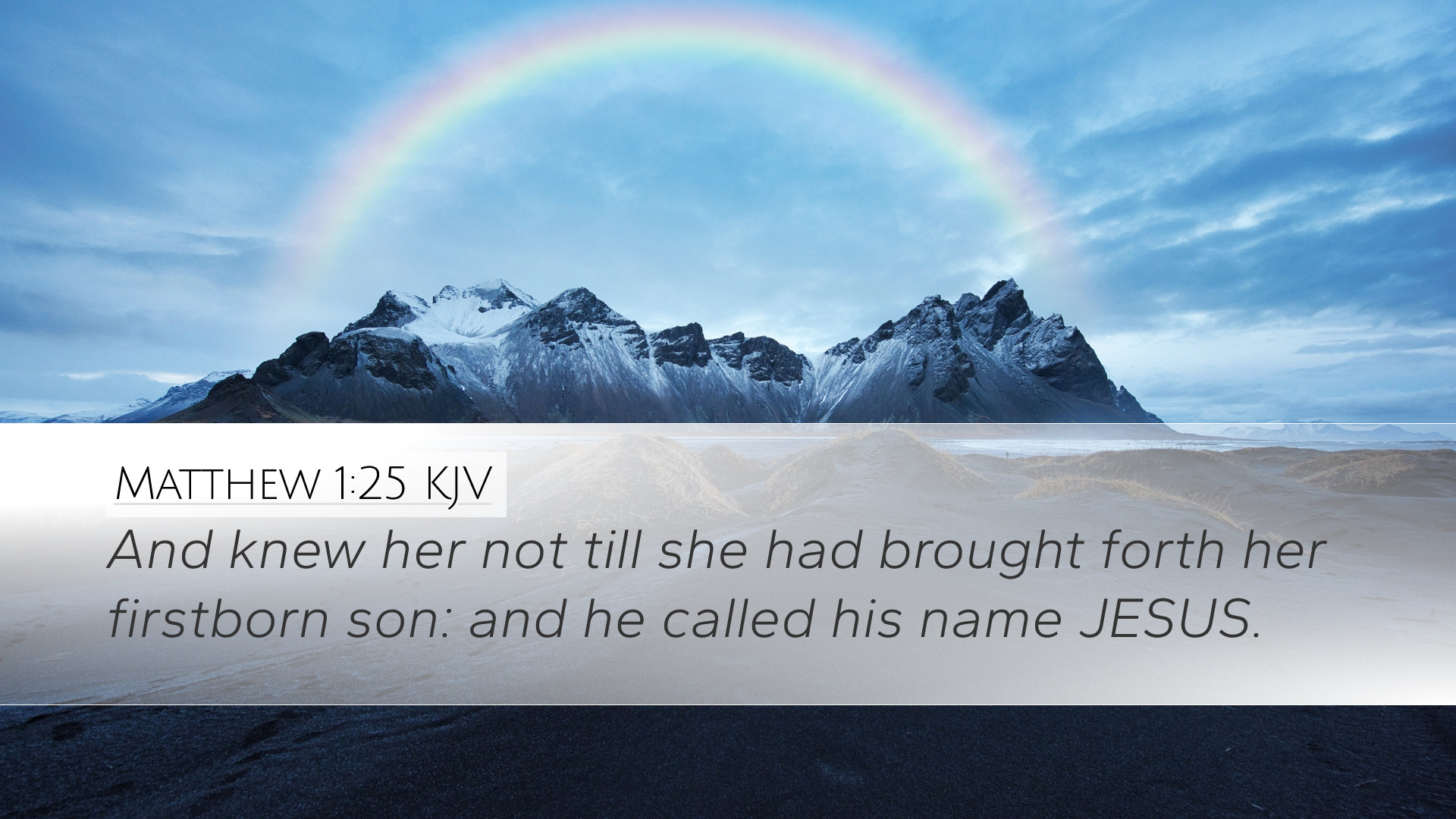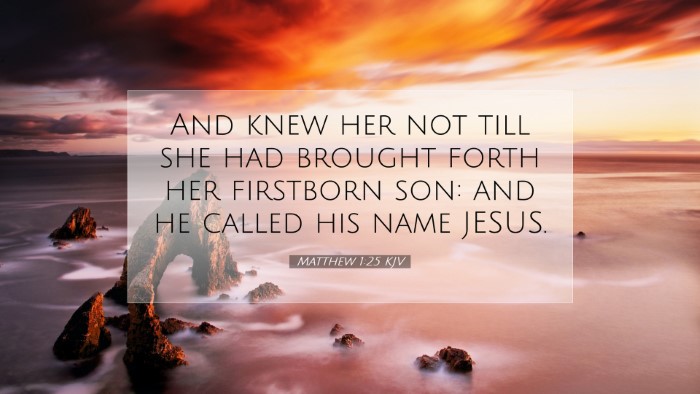Commentary on Matthew 1:25
Verse: "And knew her not till she had brought forth her firstborn son: and he called his name Jesus." (Matthew 1:25, KJV)
Introduction
This verse serves as a pivotal statement in the first chapter of the Gospel of Matthew, revealing vital truths about the birth of Jesus Christ. It provides insight into the nature of Mary and Joseph's relationship, the divine significance of Jesus' birth, and the fulfillments of prophecy that surround this miraculous event.
Historical Context
Matthew 1 begins with a genealogy that establishes Jesus' lineage and messianic credentials. After establishing Joseph's character and his righteous response to the news of Mary's pregnancy, this verse confirms the virgin birth, an essential doctrine within Christian theology.
Exegesis and Insights from Commentaries
-
Matthew Henry's Commentary
Matthew Henry emphasizes the significant role of Joseph in the redemptive narrative. Joseph's obedience to divine direction illustrates his righteousness and his willingness to protect and honor Mary despite the social ramifications of her pregnancy. Henry notes that the phrase "knew her not" highlights Joseph's self-control and his commitment to God's plan, affirming his dedication to Mary and their divine purpose.
-
Albert Barnes' Notes on the New Testament
Barnes provides a thorough examination of the term "knew her not," interpreting it as a clear indication of Joseph's abstinence from marital relations until after Mary's delivery. This abstention fortifies the doctrine of the virgin birth. He articulates that the absence of marital intimacy affirms the miraculous nature of Jesus' conception, serving to underline His divine origin as the Son of God.
-
Adam Clarke's Commentary
Clarke adds depth by discussing the cultural implications of Joseph's actions. He contemplates the honor of Mary during a time when public shame could have overwhelmed her following the unexpected pregnancy. Clarke highlights the importance of the word "firstborn," explaining that it signifies not only Jesus' preeminence but also hints at the familial role He would play in later life. Clarke’s insights reinforce the theological understanding of Jesus’ identity and mission from the outset.
Theological Significance
This verse encapsulates the fulfillment of Old Testament prophecies concerning the Messiah's birth. It fulfills the prophecy of Isaiah (Isaiah 7:14) about a virgin conceiving, asserting the divine nature of Jesus. The designation "firstborn" not only signifies His priority and importance but also fulfills the Jewish understanding of heirship, further embedding Jesus in the redemptive history as the rightful heir to the promises made to Israel.
Application for Pastors and Theologians
In preaching and teaching, this verse serves as a foundation for discussing the purity and holiness of Christ's birth. Pastors can draw on the themes of Joseph's integrity, Mary's dignity, and the overarching grace of God in orchestrating the birth of His Son amidst human challenges and societal expectations. The verse reinforces the necessity for believers to yield to divine will, paralleling Joseph's response to God's revelation.
Conclusion
Matthew 1:25 invites reflection on the mystery of the Incarnation—the convergence of the divine and the human in Jesus Christ. By examining the insights from Matthew Henry, Albert Barnes, and Adam Clarke, we can appreciate the depth of meaning encapsulated in this verse. It challenges believers to embrace the miraculous nature of Christ's birth while encouraging a steadfast commitment to righteousness and faith, as demonstrated by Joseph.


